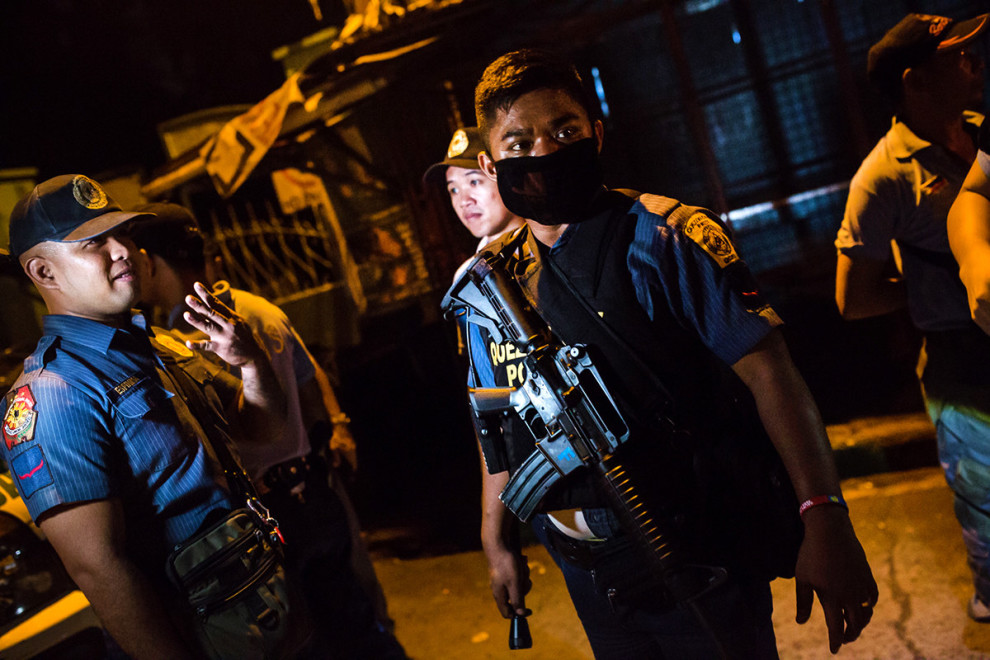On opposite sides of the world to each other, governments have been fighting an ongoing war against the so called ‘drug epidemic’. Since President Richard Nixon launched his ‘War on Drugs’ campaign in 1971, the US has been fighting to against a drug epidemic, centered mostly around illicit substances such as marijuana.
On the opposite side of the world, President Duterte in the Philippines, since being sworn into office in June of 2016, has remained faithful to his promise to not “stop until the last drug lord, last financier and last pusher have surrendered or are put either behind bars or below the ground, if they so wish”, with the war against the local drug, ‘shabu’, also known as methamphetamine.

Both countries have engaged in a bitter war against drugs, albeit Duterte’s is much more recent. In the United States however, today, Nixon’s methods are widely criticized as ineffective, as having led to the modern heroin epidemic. Duterte, on the other hand, although his methods have been described as unhumanitarian, has substantial national support, although it is unclear if his methods will prove to be successful.
Since the early 1970’s the US has relied on a policy of prohibition as the principle weapon to fight the selling and usage of drugs. However these policies did little to cure the drug problem, and have instead led to a global trail of human suffering from violence, corruption, overcrowding in prisons and disease, and crack, and later heroin, overuse.
The US heroin epidemic has risen to the forefront as a principle problem for the federal government, as heroin-related overdoses have increased by almost 400% from 2002 to 2013 , with a distinct correlation between increasing regulation on prescription pills and growing numbers of heroin users. According to the C.D.C., those dependent on prescription opioids are 40 times more likely to abuse or be dependent on heroin.
Nixon’s rapid criminalization of drugs, specifically marijuana, was seen as unproductive as drug addicts weren’t given methods to overcome the addiction, rather many switched to other drugs and the number of incarcerations for drug involvement skyrocketed. Nixon treated drugs as a luxury, price elastic good, rather than a necessity, a price inelastic good. This meant that as drug prices increased, drug addicts continued to consume them, thereby fueling the market.
Obama Administration has shifted tactics, putting forward a $133 million federal funds proposal as well as several other reforms to expand access to prevention programs and drug treatment. These measures which treat drugs as a issue of public health rather than a criminal issue are much more productive and likely to aid those suffering from drug addictions. In some states, drugs are being decriminalized, following a successful decriminalization of drugs in Portugal in 2001.

In an open letter to the UN, over 1,000 leaders including Richard Branson, Warren Buffett, and Bernie Sanders wrote that “humankind cannot afford a 21st-century drug policy as ineffective and counterproductive as the last century’s,” and that “a new global response to drugs in needed, grounded in science, compassion, health and human rights.”
In Manila, the Filipino President Rodrigo Duterte has stood by his vow to wage a war on drugs. In the seven weeks since he was sworn into office, the number of people killed lies between 1,800 and 1,900, with only about 750 recognized as official police operations. Duterte’s war on drugs is heavily made up of extrajudicial killings and has led to escalating international tension, notably with the UN, EU and the US.
As the numbers of those killed in the war against drugs rises, there is deep concern that the Philippines has shifted into “an era of the death squad”, an idea which is furthered by Duterte’s citations of Hitler and the Holocaust, proclaiming that he would “happily slaughter three million drug addicts”. Duterte has received international condemnation not only for the surge in killings but for his
prominent use of outlandish statements and insults, including calling Barack Obama a “son of a whore”. However the Philippian public are seemingly on the side of Duterte with a poll in June 2016 by Pulse Asia Research showed his approval rating at 91%, due to the perceived success of extrajudicial killings, accompanied by the flourishing remittances and outsourcing sector allowing for a growth in domestic consumption.
In today’s society it is important to recognize that simply banning or taxing the drug is not enough to reduce its consumption as for addicts it is treated as a necessity. The most effective methods at present are treating addicts and instilling prevention programs so the demand for the drug decreases
By Phoebe Thomas


































































